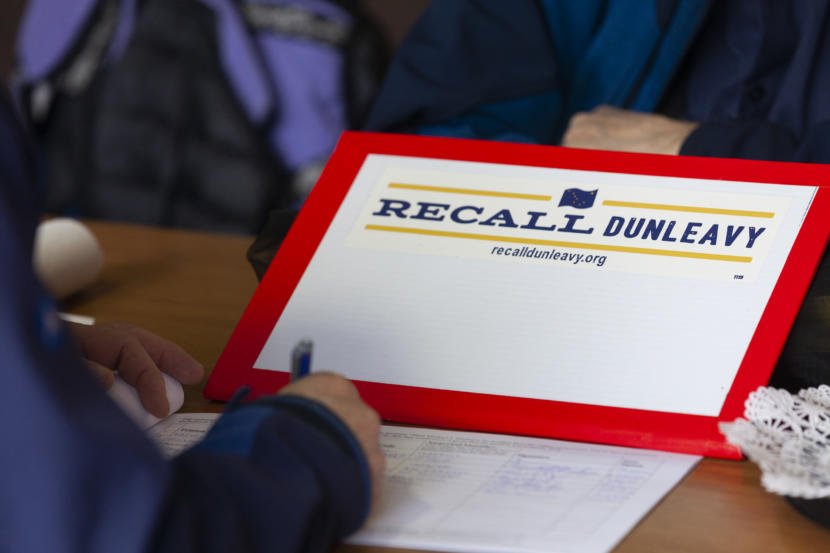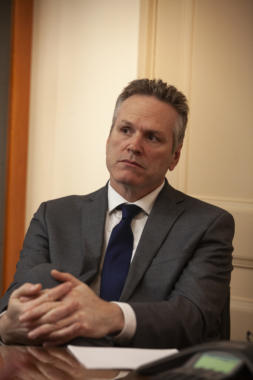
The campaign to recall Gov. Mike Dunleavy has been moving forward by gathering signatures by mail, but it still needs tens of thousands of signatures to hold a recall election.
Separately, the Alaska Supreme Court this week received new arguments on an appeal that could block the recall.
Recall Dunleavy campaign manager Claire Pywell said the campaign has received 4,150 requests since March 20, when the campaign shifted to being based by mail. Each request is mailed a sheet with space for up to 15 signatures.
The campaign had gathered 30,200 by March 20, and will need 71,252 to hold an election. While the organizers originally aimed to hold an election before the August primary, the deadline to ensure that is passing this weekend.
Pywell said the campaign plans to mail petition sheets to the Alaskans who signed the recall application but haven’t signed the petition to hold the election yet.
The signature-gathering has been proceeding while the state Supreme Court has been considering an appeal that would block the recall.
The court asked both sides to further explain their arguments about one of the four grounds for recall listed on the recall application: that Dunleavy violated the separation of powers between the executive branch of government and judiciary by vetoing court system funding.

On Monday, both sides filed their arguments.
Recall Dunleavy lawyer Jahna Lindemuth wrote that Dunleavy went beyond his constitutional authority to issue line-item vetoes when he linked the veto to court decisions. He reduced funding by the amount the state Medicaid program paid for abortions that courts have ruled are required.
Lindemuth compared the veto to a hypothetical example: Suppose a governor vetoed funding for rural schools and said it was because the governor disapproved of funding schools for Alaska Natives. Lindemuth said this would be unconstitutional, and that the abortion veto is also a violation of the constitution.
Lindemuth argued that if a governor threatens court funding over decisions, that would attack the courts’ independence.
Arguing for the state Division of Elections, Assistant Attorney General Margaret Paton-Walsh wrote that one problem with the recall application is that it alleges Dunleavy violated the separation of powers and attacked the judiciary, without directly referring to Dunleavy’s statement in the veto linking it to court decisions.
Paton-Walsh said that the state constitution clearly grants the governor the power to issue line-item vetoes like the one on the judiciary.
She also noted that the veto affected less than 1% of the court system’s funding. She wrote that there might be an issue if a governor vetoed basic funding for a constitutionally-mandated service, but that’s not the case with this veto.
Paton-Walsh also wrote that allowing voters to vote on this issue would make the recall political, when state law doesn’t allow for a political recall process.
It’s not clear when the court will rule on the appeal.
